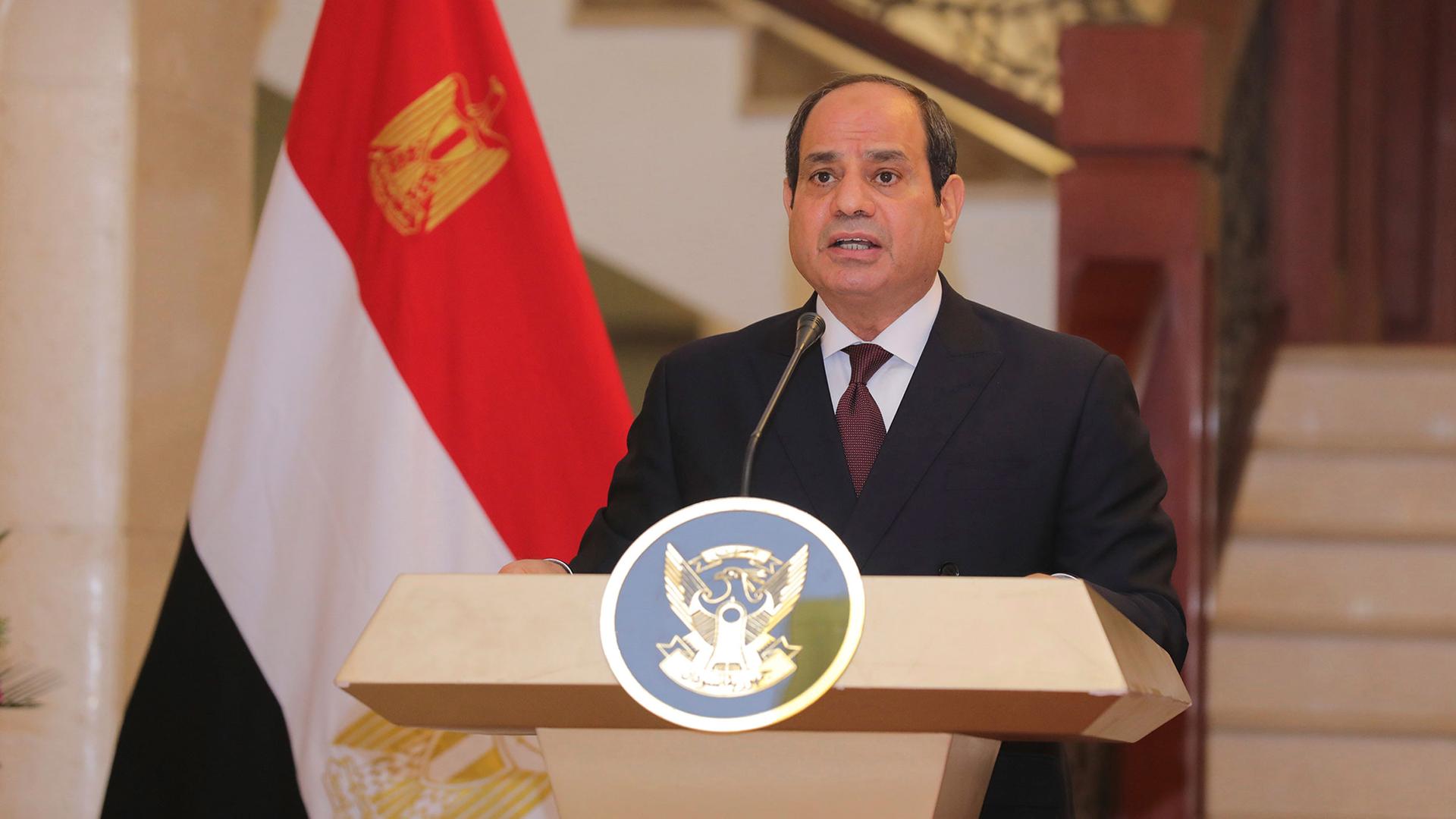Activists look to Congress after Biden requests military aid for Egypt without human rights conditions
During his campaign for president, then-candidate Joe Biden promised “no more blank checks for Trump’s favorite dictator”: Egyptian President Abdul Fattah al-Sisi.
But some human rights activists say that’s just what Biden has done by recommending $1.3 billion in military aid for Egypt without imposing any human rights conditions.
Groups, including Amnesty International, had urged the administration to use the aid to encourage Cairo to address abuses. But instead, the proposed defense budget released late last month makes the same request for Egypt that’s been made since 1987.
“To me, this is policy on autopilot, on cruise control.”
“To me, this is policy on autopilot, on cruise control,” said Seth Binder, director of advocacy at the Project on Middle East Democracy.
Egypt has an estimated 60,000 political prisoners — including activists, lawyers and academics. Among them are five Egyptian Americans. Last month, the Washington, DC-based advocacy group, The Freedom Initiative, released a report showing that Egypt had also jailed the family members of five people in the US after they spoke out about human rights.
Related: Powerful countries break their silence on Egypt’s human rights abuses
“These are clear efforts on the part of the Egyptian government to curtail rights and freedoms in the United States.”
“These are clear efforts on the part of the Egyptian government to curtail rights and freedoms in the United States,” said Allison McManus, the initiative’s research director.
US Secretary of State Antony Blinken cited The Freedom Initiative report when he was in Cairo last month meeting with Sisi.
“I certainly raised this in my meeting today and will continue to do so until Americans are reunited with their families,” he said during a press conference. “More broadly … President Biden takes the issue of human rights, and our commitment to human rights, very seriously. Indeed, he’s asked us to put it at the heart of our foreign policy. And that’s exactly what we’re doing. And that was reflected in the conversations that we had today.”
McManus said many in the US hoped that the meeting between Blinken and Sisi would lead to the release of their imprisoned family members.
Related: Public art honoring Egyptian American Moustafa Kassem sends universal human rights message
“We celebrated the attention that was given to the issue, but we can’t really celebrate until we see more releases,” she said.
Meanwhile, Egypt earned the Biden administration’s gratitude for its help during the recent violence between Israel and the Palestinians — something Blinken mentioned at the same press conference.
“Egypt played a crucial role in brokering the ceasefire,” he said. “It’s already committed $500 million to the reconstruction effort in Gaza.”
Related: Israeli police arrest dozens in night of chaos in Jerusalem
Egypt has been a key ally of the US, and the second-largest recipient of military aid from Washington — after Israel — since the Camp David Accords of 1978.
The Biden administration has already indicated it will take a nuanced approach to its relationship. But in February, it approved a $197 million sale of missiles to the country, to the disappointment of human rights activists.
“That was an opportunity for the US government to say, ‘No, no, no, we are making a change. We’re not just going to continue business as usual and move forward on an arms sale. We’re going to need to see legitimate progress on human rights reforms,’” Binder said. “And they didn’t do that.”
Advocates pushing for a harsher stance toward Egypt now have their hopes centered on the US Congress, where the budget will go next for review. And Congress has already shown a willingness to act. Last year, it made a portion of aid to Egypt conditional to the release of political prisoners. But Blinken has the power to waive that requirement in the interest of national security, and he has until the end of September to do so.
Binder hopes Congress takes that power away: “I’d like to see them remove the national security waiver entirely to send the strong message that Congress does care about human rights in Egypt, and is unwilling to sit back and wait anymore.”
Related: UN Human Rights Council starts work to address a ‘pandemic of human rights abuses’
Some experts believe that making military aid contingent on human rights improvements will have the wrong effect — for instance, pushing Egypt into the arms of countries like Russia. And earlier this year, Egypt did defy the US by buying Russian jets.
McManus of The Freedom Initiative acknowledged the argument but said she doesn’t see any leverage being used by the US toward Egypt.
“When push comes to shove, we don’t actually see firm policy changes.”
“I think what we’re seeing is a desire to return to business as usual, where the administration will insist on human rights behind closed doors, where they’ll continue to really insist that they are prioritizing issues like political detentions, like freedom of expression and freedom of association,” she said. “But when push comes to shove, we don’t actually see firm policy changes.”
Whatever the Biden administration’s approach, thousands of families are hoping it will somehow result in the release of wrongly imprisoned Egyptians and Egyptian Americans in Egypt.
